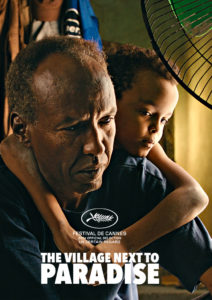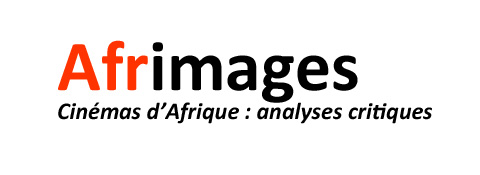Presented in the « Un certain regard » section of the Cannes 2024 festival, the beautiful The Village next to Paradise is set in Somalia. It was interesting to meet its director, Mo Harawe, to gain a better understanding of the film’s strengths. Hicham Rami mixed a few passages from the interview with extracts from the film : see on Instagram. The interview is published in french on the Africultures website.
Your way of bringing things with the dialogs is amazing. Humor seems a way for you to break what would be too sentimentalist or pathetic. How did you develop that writing?
I really don’t know but I would assume that it comes from the somalian way of storytelling, sometimes subtle, indirect, and told through poems. It has a lot of humor. You don’t have to say everything: you can leave things. I believe this more impactful when people try to find themselves what’s missing or what’s between the lines, between the dialogs. Humor is like spices, it is very human, and allows to talk about serious things without heaviness.
You participated to various labs. How did you preserve this way of writing?
I was asking myself if my gut feeling agreed or not, but also questioned myself. I do write a lot intuitively and somehow trust my gut feelings. It worked untill now. That will be always the question: is it what I really feel and mean?
 Would do say the same for the pictures? How did you work with your egyptian DOP, Mostafa El Kashef?
Would do say the same for the pictures? How did you work with your egyptian DOP, Mostafa El Kashef?
I got to know Mostafa in Egypt and wanted to work with him on my last short film, but it couldn’t happen because he couldn’t travel to Somalia. We said that we would do the next film together. He brought his team from Egypt and committed to the project and stayed four months in Somalia. Without him, I don’t think that the film would have been possible.
Why did it take so much time?
We were working with a lesser technical team and a lot of people who were on a film set for the first time. I therefore knew that we would need time. That was a condition to make this film: luckily, my producers were really supportive in that sense.
Another aspect is the soundtrack. How did you manage with the wind which brings a lot to the film?
The wind was for me a character in the film. I wanted to shoot during the period when that wind blows, between July and September. It was a challenge for everyone: a lot of dust, the pigments, someday the camera stopped working. For the sound, it was also challenging. The sound department did a great job. It was challenging but it was worth it.
The child, Cigaal, dreams and draws a lot, but will not remember his dreams anymore. What did you want to say with that?
Something very practical. He was at home in a place where he was comfortable, with his father, Mamargade. In a way he was free. When he has to go to the boarding school, it’s like military. That takes away something. He is not free as he was before.
I wondered if it had something to do with your situation in Somalia.
It has nothing to do with myself as a person, but I know that feeling. I understand Mamargade’s position and Cigaal’s position. Mamargade try to do the best for his child. The other child had probably to stay, he is circled by water. The water act as a borderline. Cigaal has the whole land behind him. It’s a matter for us to realize who we are and what we become. Someone else decide for us, and the social condition as well.
Araweelo, Mamargade’s sister, become peu à peu the main character in the film, a positive woman. That’s an important choice!
Yes, I wanted that you see first Mamargade as the main character. But somehow, it is always about her. Araweelo has the resilience and tries to achieve whatever the goal is. She gets what she wants. She couldn’t see that she had already a family. Her last smile is what I was looking for.
It’s a way to make out of her life something next to the paradise!
Yes.

